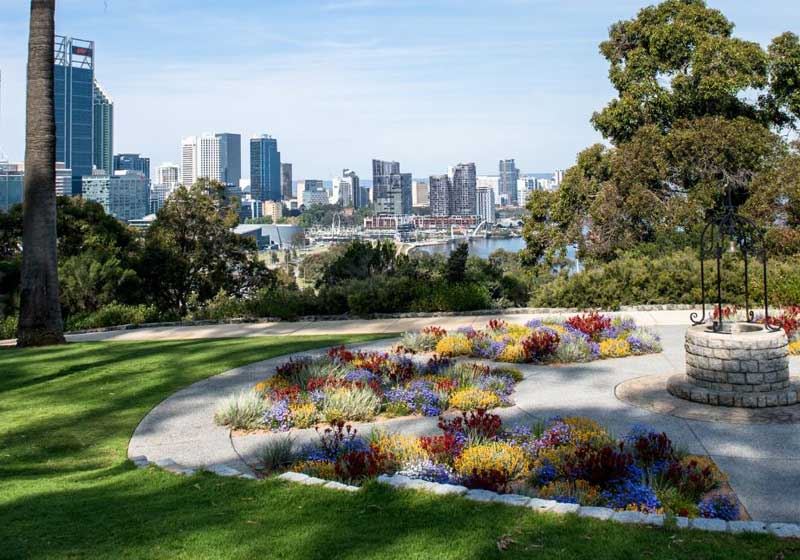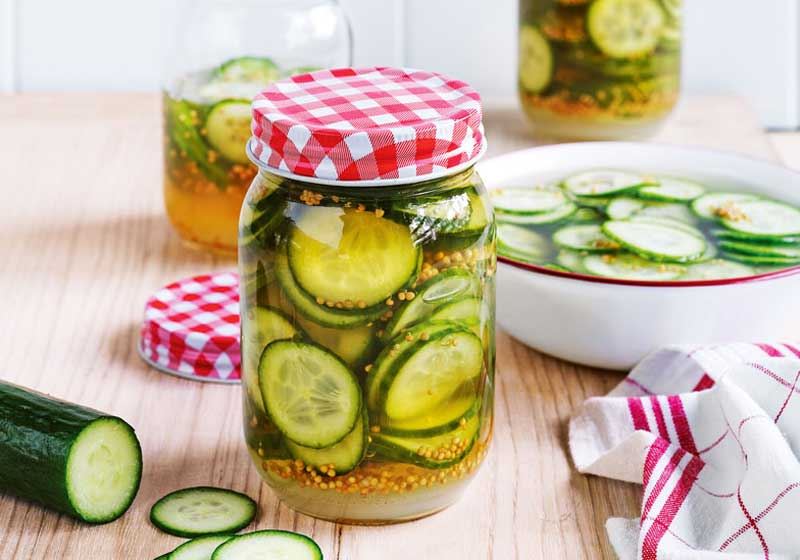By Laura Rancie
Chinese New Year, also known as the Spring Festival and sometimes also Lunar New Year is a significant traditional festival celebrated by many people of Chinese descent around the world.
Food plays a crucial role in Chinese New Year celebrations, with various dishes symbolising good luck, prosperity and longevity. Here are some traditional foods that are commonly consumed during the Chinese New Year festival:
Fish (pronounced: yú): Serving a whole fish symbolises abundance and prosperity. The word for fish in Chinese, 'yú' sounds like the word for surplus or abundance.
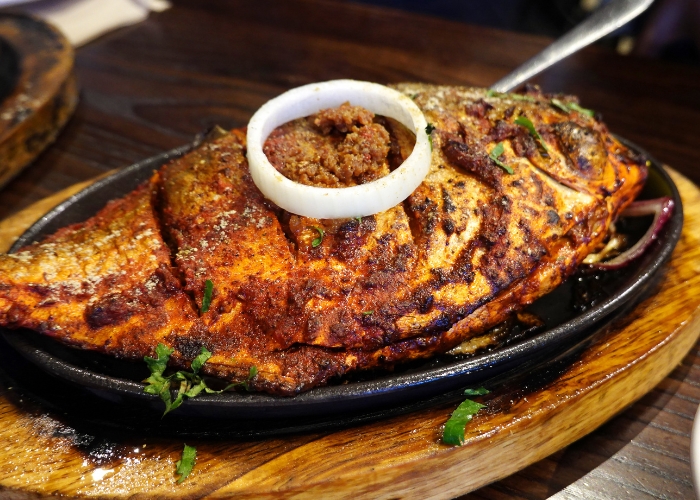
Dumplings (pronounced: jiaozi): Dumplings are a staple during Chinese New Year and their shape resembles ancient Chinese gold or silver ingots. Eating dumplings is associated with wealth and good fortune.
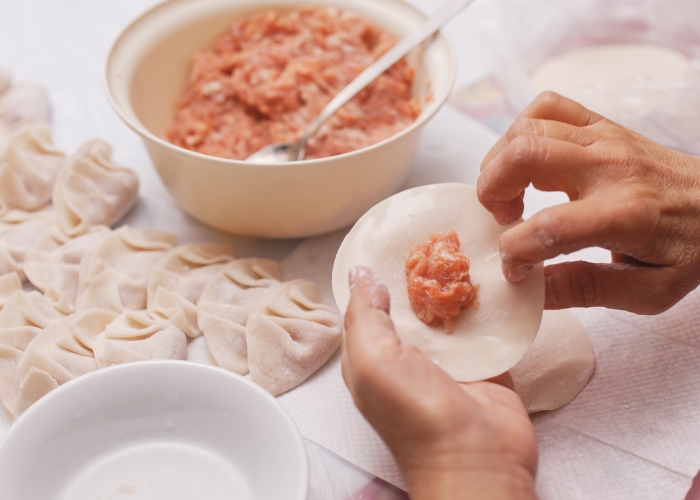
Spring Rolls (pronounced: chun juan): These cylindrical-shaped rolls are filled with vegetables, meat or both. They are fried until crispy and symbolise wealth and a fresh start as they are often eaten during the spring season.
Nian Gao: This sweet glutinous rice cake is a symbol of growth, progress and the promise of a better year. The word 'nian' means 'year' and 'gao' sounds like 'tall' or 'high' signifying the promise of advancement and the growth of children.
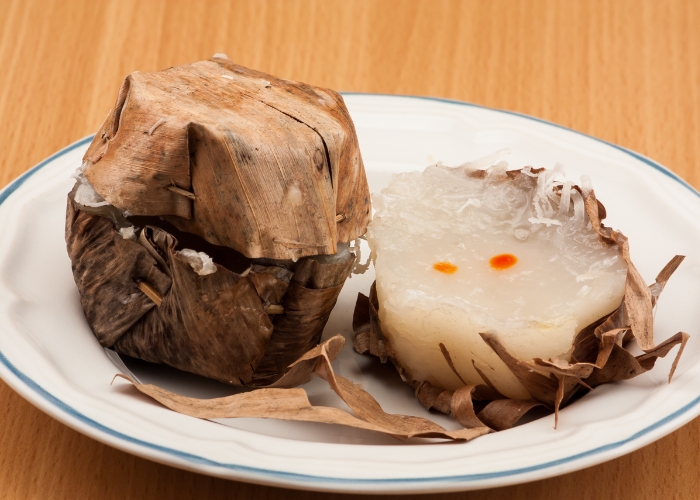
Tangyuan: These sweet rice dumplings are traditionally eaten during the Lantern Festival, which marks the end of the Chinese New Year celebrations. The round shape symbolises family reunion and unity.
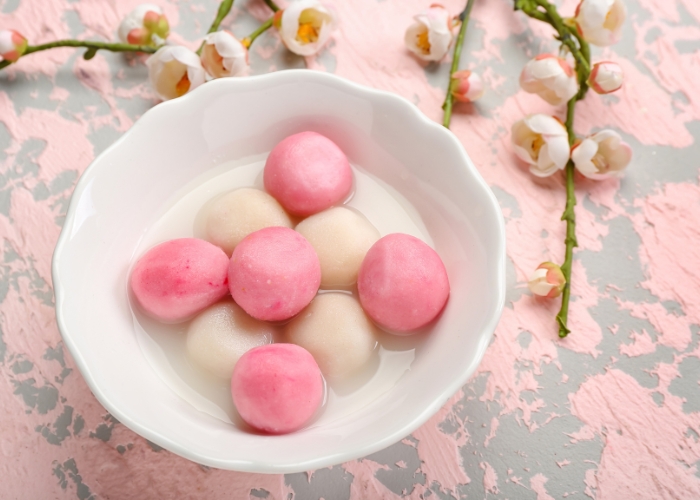
Jiaozi: While dumplings are commonly eaten throughout the Chinese New Year period, some families specifically prepare and eat jiaozi on New Year's Eve. The shape resembles ancient Chinese gold or silver ingots, symbolising wealth and prosperity.
Tangerines and Oranges (pronounced: chéng jú): These fruits symbolise wealth and good luck. The Chinese words for tangerine and orange sound like 'luck' and 'wealth' respectively.
Noodles (pronounced: miàn tiáo): Long noodles symbolise longevity. It is customary not to cut the noodles, as it is believed that it may shorten one's life.
Pomelo (pronounced: yòuzi): The large citrus fruit represents abundance, prosperity and good fortune.
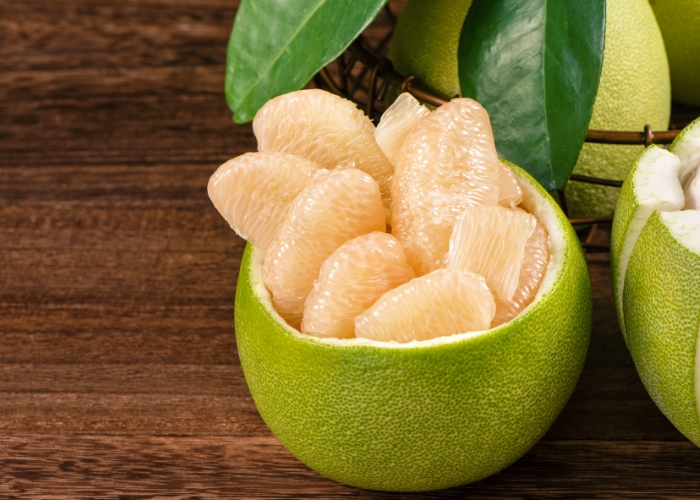
Eight Treasures Rice (pronounced: ba bao fàn): This festive dish consists of sticky rice mixed with various ingredients such as dried fruits, nuts and sweet red bean paste. It symbolises a rich and bountiful life.
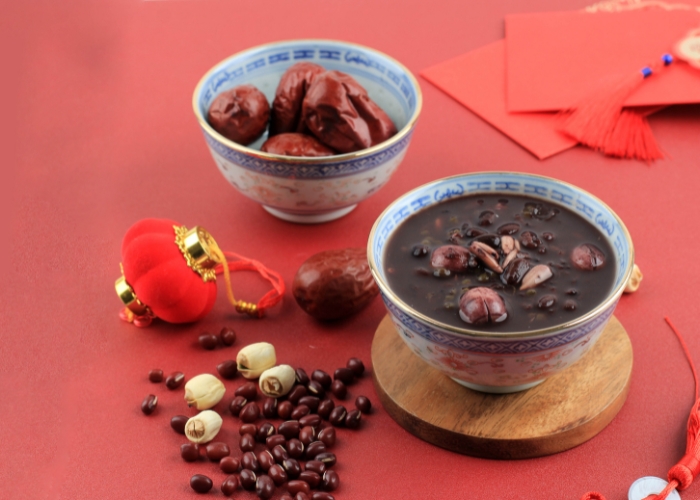
These foods are not only delicious but also carry cultural and symbolic meanings that add to the festive atmosphere during Chinese New Year celebrations.



